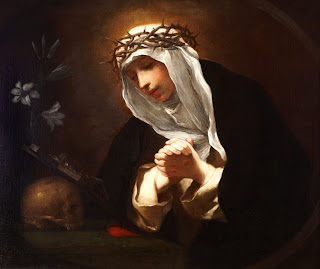 My most senior colleague, Frank Mallory, died last fall, and yesterday we gathered at the college's Great Hall to remember his life with music and laughter. Family, friends, collaborators, fellow musicians met to make music and exchange memories. He had been at Bryn Mawr for 60 years, 54 of them teaching undergraduates and graduates. This is what I had to say.
My most senior colleague, Frank Mallory, died last fall, and yesterday we gathered at the college's Great Hall to remember his life with music and laughter. Family, friends, collaborators, fellow musicians met to make music and exchange memories. He had been at Bryn Mawr for 60 years, 54 of them teaching undergraduates and graduates. This is what I had to say.“Somewhere, out at the edges, the night
Is turning and the waves of darkness
Begin to brighten the shore of dawn
The heavy dark falls back to earth
And the freed air goes wild with light.” — From John O’Donohue’s poem Matins
Light. As a quantum chemist, that is one way I imagine the universe. As primordial darkness gone wild with light, as an infinitely, and infintely varied assembly of Schroedinger’s wave functions. Complex forms which extend out from their centers to infinity. Molecules. Atoms. Electrons. Nuclei. In this sense, we are all light.
Perhaps in the same way we can say we are light from light. That light is where we begin, atoms built into molecules into cells into our bodies, and it is our destiny, what we surrender with every breath. It is what we live and move and have our being within.
As a photochemist and an NMR spectroscopist Frank worked in light of all sorts. It was his tool to alter the fabric of the universe, the ultraviolet light that drove the Mallory reaction to so neatly warp one molecule into another. Radiofrequencies were a tool for exploring the universe, for interrogating atoms, asking who was talking to who, and why. And ultimately it was the medium in which he worked. In the hunt for routes to ever longer ribbons of carbons, Frank gathered atomic wavefunctions into new forms. Light again from light.
But I don’t want to forget that Frank was light. Light to a legion of chemistry students — though not literally a legion. As I write this, I realize that Frank would be tapping at my door to tell me that a Roman legion was 5000 men, and then to tell me how many students — to the student — he had taught. Light brings clarity and Frank brought a precise and clear light to science and to language.
Frank was light to colleagues and friends. When my husband died, Frank and Sally came to stay with me at the hospital, all through a dark night. They took me home. Frank was a steady light.
Frank held up a light into the past, he was a bard — a consumate story-teller and a deep repository of lived history of both the college and the field of chemistry. Thanks to Frank, every time I mention the word “electronegativity” or “Pauling” in Park 180, I see Linus Pauling stretched out in the front row, drawling, “Mr. Mallory….”
Frank was wild light. Ask those of us who have been greeted by singing gorillas, or laughed so hard at word games around a dinner table we could hardly breathe, or who kept track of the Flyers by the orientation of the tickets on Frank’s door.
Frank was light. We are light. As light from light, we all bear some of Frank’s light to hand on: students, friends, colleagues and family.
“Somewhere, out at the edges, the night
Is turning and the waves of darkness
Begin to brighten the shore of dawn
The heavy dark falls back to earth
And the freed air goes wild with light.”
I can think of no better way to wish my friend and photochemist colleague on his way, except to say “May perpetual light shine upon you, Frank.” May you continue to be wild light.
